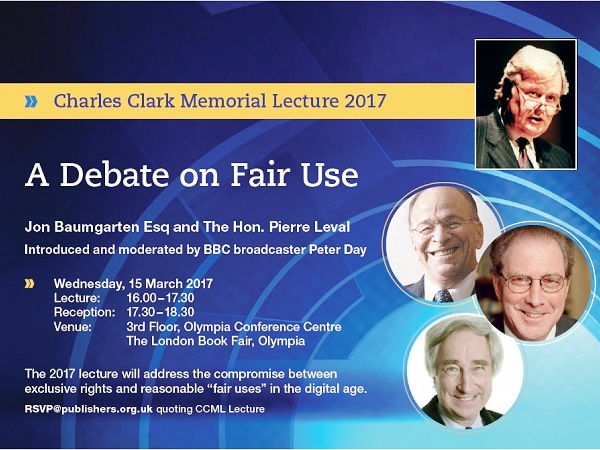
Nonetheless, to publishers and other copyright watchers, this was a tantalizing prospect: the Hon. Pierre Leval, author of the April 2016 Google Books decision, trading scholarly blows with his old confrère Jon Baumgarten Esq., a stalwart IP defender and outspoken critic of the evolving fair use doctrine.
Judge Leval, America’s foremost copyright jurist and a judge on the U.S. Court of Appeals Second Circuit, opened by conceding that content owners were living in ‘scary times’. The concessions stopped there, though, and he asserted that digital technologies can improve utility ‘without significant impairment’ of copyright protected rights.
Leval told the 200-strong audience of mainly copyright adherents that while the Google Books case had been protracted, acrimonious and not without controversy, his decision had been a simple one. He said the Google’s industrial-scale copying and indexing of books brought big benefits to ‘authors and the public’, did not offer a substitute for the books and did not interfere with IP owners’ right to control distribution.
He said: ‘I say to you, to an audience which I assume to be an audience of content owners and rightsholders, fair use is not your enemy; it is solicitous of your rights.’
“Fair use is not your enemy; it is solicitous of your rights.”
The Hon. Pierre Leval
Taking the podium second, former General Counsel for the U.S. Copyright Office, Jon Baumgarten, parried these assertions by saying that publishers did not see fair use as their enemy, but that Google’s systematic, mass copying of books was ‘very far outside the sense, spirit, design and intendment of fair use as I have known and practiced it for over forty years.’ He also asserted that the Google Books decision overly expanded the margin to freely copy others’ works – a precedent that could potentially do significant harm to rightsholders in the digital age.
Ominously, Baumgarten then warned that ‘elements of the technology industry are promoting US-style fair use overseas’ in order to further their commercial interests, echoing comments made by 2016 Charles Clark lecturer Professor Michael Fraser, who said that powerful social forces are attacking copyright.
“Elements of the technology industry are promoting US-style fair use overseas.”
Jon Baumgarten Esq.
The debate-format Charles Clark Lecture 2017, of which the IPA was a co-sponsor, was the brainchild of Paul Doda, Global Litigation Counsel for Elsevier, and the chair of the IPA’s Copyright Committee. The lecture is delivered annually under the auspices of the London-based Publishers Licensing Society (PLS) and UK Publishers Association (PA), in association with The London Book Fair.
The other co-sponsors of the event were: American Association of Publishers (AAP); Copyright Clearance Center (CCC); Copyright Licensing Agency (CLA); Federation of European Publishers (FEP); International Association of Scientific, Technical and Medical Publishers (STM); International Federation of Reprographic Rights Organizations (IFRRO); Elsevier; Harbottle and Lewis; Proskauer; Pearson; Taylor Wessing; and WIGGIN.

